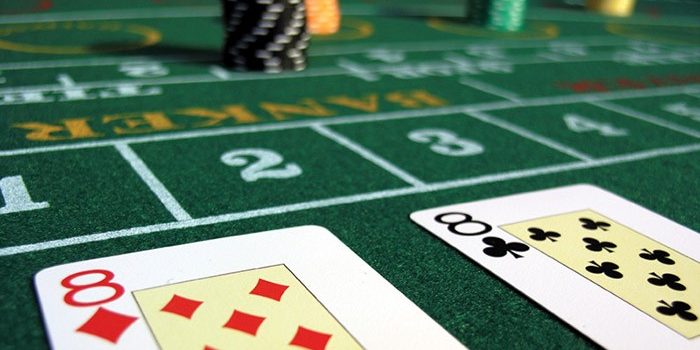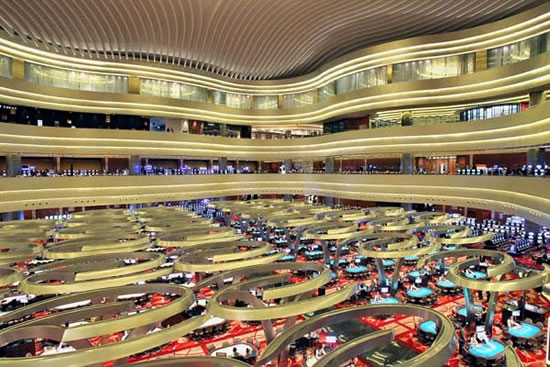How Is Blackjack In The Casinos Favour
Different blackjack rules have different rules. It’s still the same game, but how the dealer plays her hand might vary from casino to casino or even from table to table.
Some of these rules benefit the player, while some of them give the house a bigger edge.
Knowing the difference can inform your decisions about which games you’re going to play.
Players May Not Understand Probabilities Well Enough. If you’re not trying to count cards, then you. In the standard game rules, the dealer has a 2.4% advantage over the player. Casinos don't need to rig anything. Casinos may also offer additional ‘prop' bets, such as insurance, perfect pairs, etc. These bets, while offering high win odds, often have a house advantage of 5% or more.
The basic measure used to compare blackjack games is the house edge. This is the statistically predicted amount you’ll lose on average over time. It’s expressed as a percentage, so you can use it to estimate how much money you’ll lose to “the grind” over a long period of time.
For example, if you’re playing for $10 per hand and getting in 80 hands per hour, you’re putting $800 per hour into action. If you’re facing a house edge of 1%, your expected loss is $8/hour. If the house edge is 0.5%, your expected loss is $4/hour.

In this post, I examine some of the biggest rules changes and how they affect the house edge for the game.
The Old-School Standard Set of Blackjack Rules
If you went to the old Strip in Las Vegas during the golden age of blackjack – the 1960s – you would have faced a game with the following set of rules:
- You’d be dealt cards from a single deck. The dealer would be required to stand on a soft 17 or higher. You’d be allowed to double down on any 2 cards.
- You would NOT be allowed to double down after splitting, but you would be allowed to re-split. (The exception would be aces – no re-splitting of aces, even then.) If you did split aces, you’d only get 1 more card. You’d have no surrender option available.
With this rule set in place, the house edge would only be 0.01% if you played with perfect basic strategy. That’s as close to a break-even game as you could ever hope for.
You won’t find a blackjack game like that anymore – not even online or in Downtown Vegas.
Here are the biggest changes in the rules that affect the house edge for the modern variations of the game.
The Number of Decks in Use Are a Big Deal
Most people already know that a single deck blackjack game is better than a game with more decks – everything else being equal.

If you double the number of decks – using 2 decks instead of just 1 – you’re looking at raising the house edge by 0.3%. Increase the number of decks to 8, which is the standard in most casinos now, and you’re looking at raising the house edge by 0.6%.
That doesn’t sound like much, but it’s the difference between a house edge of 0.5%, 0.8%, and 1.1%, If you’re putting $800 per hour into action, you’re looking at increasing your average hourly loss from $4 to $6.40 to $8.80.
And the more you risk per hand, and the more hands you play, the more that tiny 0.6% costs you.
So, look for games with fewer decks as much as possible.

Does the Dealer Hit or Stand on Soft 17?
If the dealer hits on a soft total of 17, the player loses more in the long run.
How much more?
The house gets an extra 0.20%. Again, that doesn’t sound like much, but combine that with an 8-deck game, and you’ve added 0.8% to the house edge.
Of course, if those were the only 2 changes you made to that old-school version of blackjack I wrote about in the intro to this post, you’d still be playing a pretty good game.
But those aren’t the only rules variations you’ll run into. Not by a long shot.
When Can You Double Down?
Being able to double down on any total is a big deal, mathematically. After all, you’re basically being given the option of putting twice as much money into action when the situation is good.
For Example:In some casino blackjack games, though, they only allow you to double down on a total of 11. That’s a terrible rule for the player. That’s 0.78% to the house edge. Being allowed to only double down on 10 or 11 is much better. That only adds 0.26% to the house edge.
Some casinos get even more granular than this. They might only allow you to double down on 9, 10, or 11. In that case, it increases the house edge by 0.14%.
But, you’re in a lot better shape in a casino where you’re also allowed to double down on soft totals and on 8s. Those don’t seem like that many situations, but they’re common enough to have a significant effect on the house’s edge.
What Are the Rules for Splitting?
Some casinos don’t allow re-splitting. That’s obviously not idea for the player, but in a single deck game, it doesn’t make that much difference because the situation comes up so seldom.
It only comes up when you get the same card again, and in a single deck game, you only have 4 of each card. The probability of getting to re-split is low.
How low?
The math is easy. You get dealt a pair of 8s. You have 50 cards left in the deck, and only 2 of them are 8s.
This means that the probability of getting another 8 is 2/50, or 1/25. That’s 4%. Of course, you get 2 shots at it, but it’s still going to happen so rarely that it’s almost insignificant.
But blackjack IS a game of inches, so let’s look at the effect on the house edge. If you’re not allowed to re-split any pairs, the house edge increases by 0.03%.

What’s the Payout for a Blackjack?
The biggest rule that favors the player in a real money blackjack game is the payout for a natural. It’s such a big deal that I’ve written an entire post just about the importance of naturals in blackjack.
But let’s look at a theoretical game that only pays out even money for a blackjack. Assume they change nothing else from that break-even game I used as an example.
It becomes 2.32%, which means that the basic bets at baccarat or craps are better for the player than a bet on this blackjack game.
It’s rare to find a casino that offers a game that pays even money on a blackjack. The casinos that do normally provide a lot of other big rules changes to make the game more attractive to the player.

But you will find casinos offering a 6 to 5 payout on blackjack, and that still have a big effect on the house edge. This adds about 1.5% to then house edge.
Some players get confused about the difference in payouts between a 6/5 game and a 3/2 game. Some people even think 6/5 is better because a 6 is bigger than a 3.
Think about it this way, though – what’s the payoff for a bet of a single unit when you’re getting 3 to 2 odds.
It’s 1.5 units, or 1.5 to 1.
What’s the payoff for abet of a single unit when you’re getting 6 to 5 odds?
It’s 1.2 units, or 1.2 to 1.
Everyone knows that $1.50 is more money than $1.20, right? Just say no to 6/5 blackjack. Those games almost always have a huge house edge that you’re better off staying away from.
Antes in Blackjack
In Oklahoma, the casino will charge you an ante to play a hand of blackjack.
But it’s not really an ante at all. It’s a fee. You can’t win any money on it, so it’s not a bet like a standard ante in poker is. So, if you bet $5 on a hand of blackjack in Oklahoma, you have to pay 50 cents for the privilege. That’s 10% of your bet that’s a guaranteed loss.
Guess what that does to the house edge?
Yeah, I don’t play blackjack in Oklahoma, either – it’s a lousy bet. But, if I were to play blackjack in Oklahoma, I’d play for the highest stakes I could to minimize the effect of the ante on the house edge.
After all, who wants to add 10% to the house edge for any casino game?
All of This Assumes You’re Using Basic Strategy
One thing that’s important to point out is that the house edge figures listed in this post – or really, any post about blackjack – assume that you’re making the mathematically optimal play in every situation.
How Is Blackjack In The Casinos Favour Bonus
This is called being a “basic strategy” player.
You can find explanations of basic strategy in any good book on blackjack. You can also find charts and tables on various websites. In fact, the basic strategy section on this website is a great tool for learning basic strategy.
You should never deviate from basic strategy no matter how strong your hunch is. Hunches are not psychic phenomena. No good evidence exists in support of that idea.
How To Win Blackjack In Vegas
The dangerous thing is that – because gambling is random – sometimes your hunches will be right. And the human brain is built to look for and give meaning to these kinds of events.
You’ll wind up believing that your hunches are more accurate than they are unless you track your hunches carefull. It’s called confirmation bias, and it will cost you money.
Just learn basic strategy and use it on every hand.
Conclusion
How Is Blackjack In The Casinos Favourite
It’s a good idea to learn what the changes to various blackjack rules do to your expected return in the game. Picking a good game is an important part of getting the best odds in the casino.
But, if you don’t use basic strategy, it doesn’t make much difference which game you play.
Please enable JavaScript to view the comments powered by Disqus.